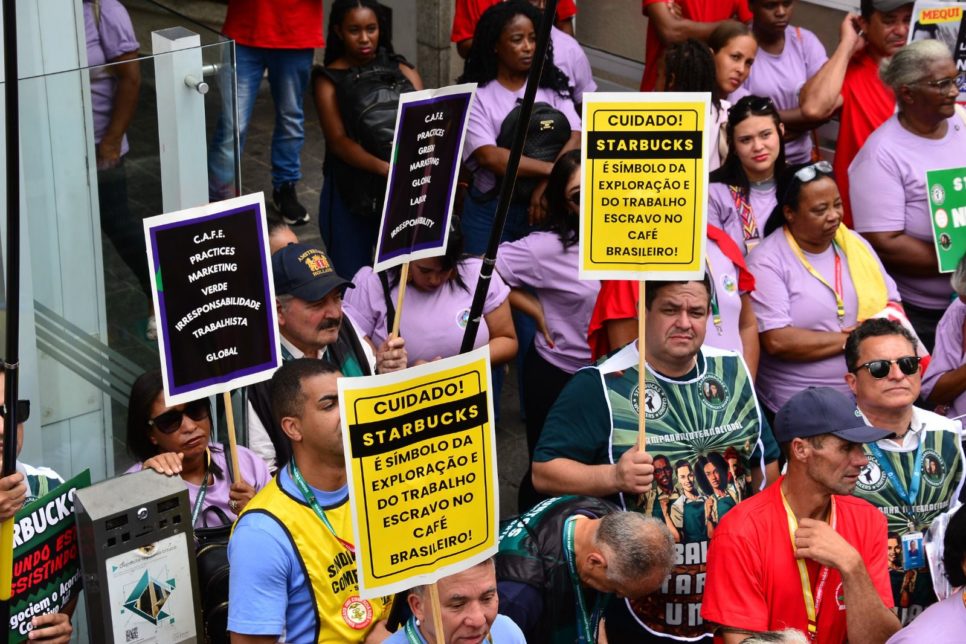Pressure for rights
Civil society pressures government on Universal Periodic Review

Civil society organizations and members of the Committee on Human Rights and Minorities of the Lower House of Congress have called on the Brazilian government to respond to the 246 recommendations received during the 3rd cycle of the UPR (Universal Periodic Review). Brazil has until August 25 to inform the United Nations which recommendations will be adopted, rejected or partially accepted.
Statements by civil society representatives at a hearing in the lower house committee were marked by indignation over the ongoing attempts by the government to eliminate rights, in particular those that affect minority groups. Their observations served to put the recommendations into context and suggest ways to follow through on them.
The Federal Prosecutor for Citizen Rights, Deborah Duprat, argued that the country is experiencing successive rights violations that have a direct impact on the eradication of poverty and the reduction of inequality. “The situation in Brazil is extremely alarming. There is no denying the setbacks, so the recommendations made in the UPR must be accepted,” said the prosecutor. Duprat also pointed out that the Brazilian Constitution endorses the UPR “to the extent that our international relations are guided primarily by respect for and development of human rights”.
Read more
The foreign policy coordinator at Conectas, Camila Asano, drew attention to the recommendations that address the ratification of the Arms Trade Treaty and the implementation of pre-trial custody hearings. “We need these custody hearings to be held in all cities in Brazil, not just the state capitals,” said Asano. She argued that these hearings were set up with the intention to reduce violence when people are arrested and to alleviate mass incarceration in the Brazilian prison system, but since these goals have not yet been achieved satisfactorily, the matter deserves more attention from the government.
Other civil society representatives spoke about the various different issues addressed in the UPR, a mechanism that allows UN Member States to suggest ways to improve the human rights situation in the country under review. Killings by security forces, police violence at protests and the freezing of public spending for 20 years, including in key areas such as health and education, were some of the topics raised during the hearing in the lower house committee.
One consensus among the organizations was the need to reject recommendation 99, proposed by the Vatican, which deals with the need to protect the family formed by a man and a woman. Prosecutor Deborah Duprat pointed out that Brazil already recognizes different family arrangements and that the recommendation of the Holy See is unconstitutional.
Paulino Montejo, of APIB (Association of Indigenous Peoples of Brazil), drew attention to the fact that the UPR contained 34 recommendations on indigenous issues, equivalent to 13.82% of the total, whereas the indigenous population corresponds to just 0.4% of the Brazilian population. “The debt is large, not just historical, but social and contemporary. A minority population in the spotlight on the international stage is alarming,” he said.
Pedro Saldanha, head of the Human Rights Division of the Ministry of Foreign Relations, split up the recommendations into themes and found that issues involving the rights of women were most frequent, with 45 recommendations. However, Saldanha declared that “there is no final position by the Brazilian State yet on the recommendations”.
In this regard, the executive secretary of the Brazilian Human Rights and Foreign Policy Committee, Fernanda Lapa, requested that the Brazilian government publish its position before it notifies the UN Human Rights Council in September. She advised the State not to view the recommendations as an attack, but instead as a possible diagnosis.
Lapa also urged the Brazilian government to hold another public hearing before the end of the year so it can comment on its response sent to the UN. Another request is for the State to agree to prepare and send a progress report with an overview of the implementation of the recommendations, containing clear criteria on this process.






